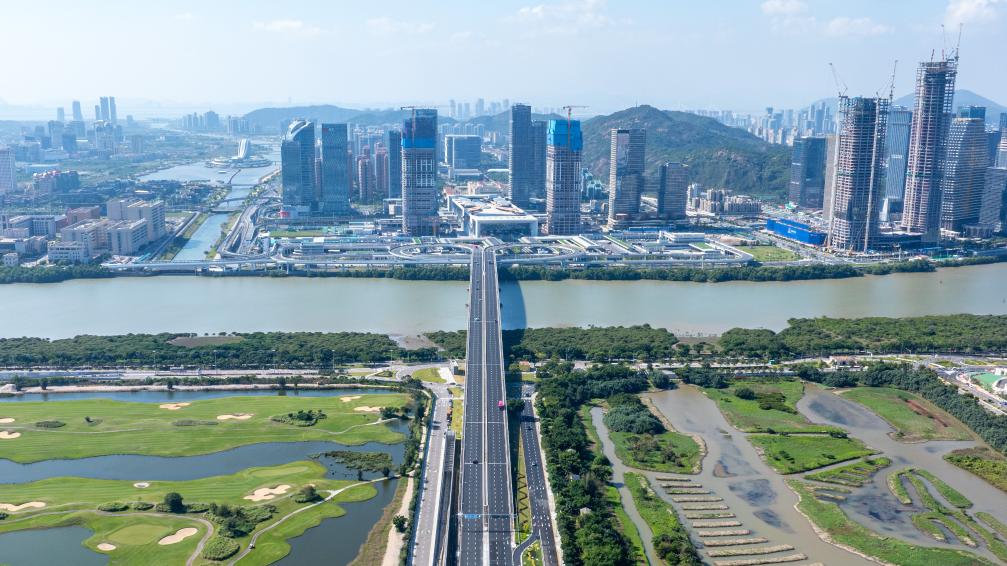
Riding high on the great achievements made across a broad spectrum since its reunification with the motherland, Macao should double down on efforts to make it more relevant to the world’s second-largest economy, and show it has what it takes to hook onto the next big story unfolding in the country.
Harald Bruning, director of the Macau Post Daily, made the remarks in a recent interview with China Daily.
“We are living in the best historic situation of Macao ever,” said Bruning, who in 2004 launched the city’s first post-handover English-language newspaper. As the newspaper celebrated its 20th anniversary, the SAR also embraces its 25th anniversary of its return to the nation.
Calling himself a longtime Macao resident, Bruning, who has lived and worked in Macao since the 1980s, has been a witness to a sea change in the city.
ALSO READ: Macao prospers amid deeper integration into national development
Known as a flourishing city of contrasts, with a rich legacy as a global entrepot, Macao has a per capita GDP that has more than quadrupled from 1999 to 2023. The city joins the ranks of the elite club with one of the highest per capita GDPs across the globe.
But the city’s sharp economic rise is not the whole story. The considerable progress on the social welfare, public administration, public housing, education and public health fronts, together with an overall modernization and digitalization drive, make Macao’s reunification with the mainland “the most important historic event that Macao in hundreds of years has gone through”, Bruning told China Daily.
“Back in 1999, I was optimistic but I would never have imagined that Macao would become such a successful economy. It’s all beyond my highest expectations,” he said.
READ MORE: Macao bridges China, Portuguese-speaking countries
Bruning said he believes this cannot continue without the staunch support from the central government under the practice of “one country, two systems”.
“‘One country, two systems’ is basically a formula. It’s not only a principle, but also a way of life in Macao,” he said. “We should take advantage of what the ‘one country, two systems’ principle has granted us and offered us.”
As the special administrative region looks to stay closer to and better align with the nation’s grand development plan, Bruning highlights several areas in which Macao could make a meaningful impact. He bets on the city’s potential to become a medical-tourist destination. He also eyes a bigger role to play in the modern financial services industry, in line with the city’s successful construction of the prototype of its digital currency system (the e-MOP) in December.
Also on the drawing board are the SAR’s efforts to develop its meetings, incentives, conferences, and exhibitions (MICE) sector, he added.
READ MORE: Thriving Macao dispels doubts about 'one country, two systems'
As the Belt and Road Initiative takes on and carries forward the spirit of integration and collaboration at a critical juncture, Macao’s entrenched status as a bridge between the nation and Portuguese-speaking countries holds new significance, Bruning said.
Bruning said Macao is the only city in China that has a Portuguese-style legal system and where Portuguese enjoys an official-language status. This makes Macao an ideal platform for training courses, business meetings, and setting up think tanks and startups involving the nine Portuguese-speaking countries with a combined population of 270 million.
More importantly, Bruning said, such closer ties could spell potentially huge opportunities for the development of modern and standardized traditional Chinese medicine, where traditional Chinese medicine is growing in stature as an alternative medical treatment and health services across Portuguese-speaking countries in Africa and Europe.
With the greener pastures up for grabs, Bruning urged the city’s younger generations to “go out into the Guangdong-Hong Kong-Macao Greater Bay Area” and embrace a world of possibilities in a more proactive manner.
Zhang Xiaoyang contributed to the story


